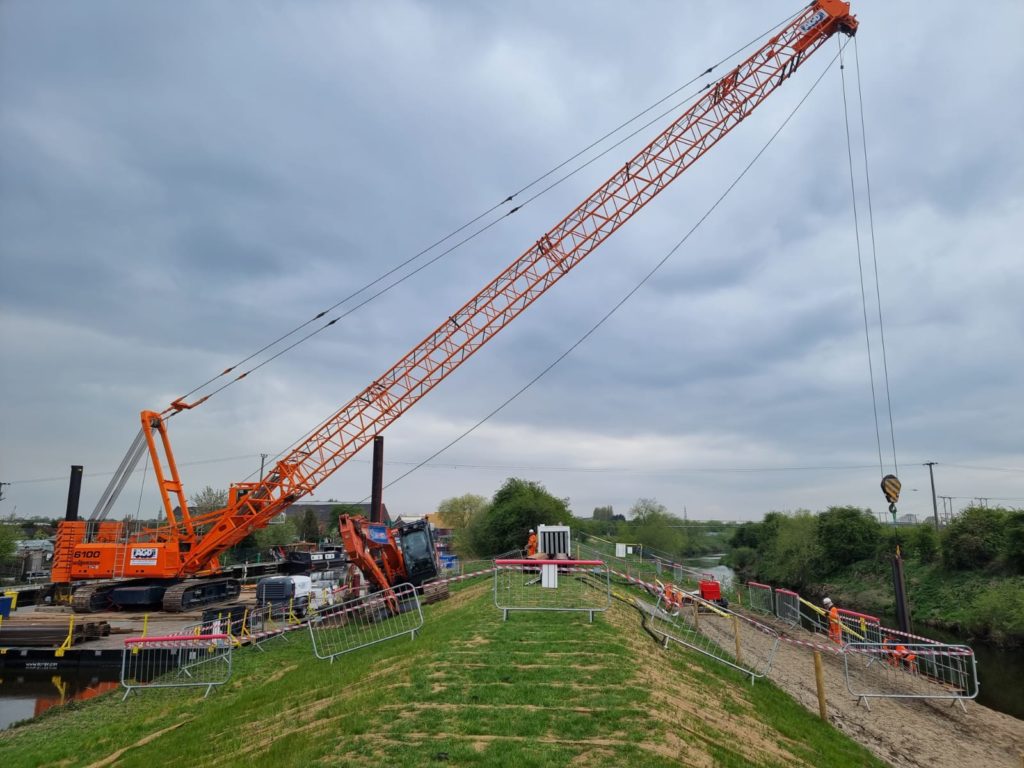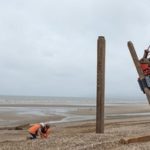News - Construction News
Land & Water Start Emergency Doncaster Works

Land & Water, a wet engineering firm, has begun emergency works on the River Don in Doncaster. The works are to repair a large slip on an embankment on behalf of BAM Nuttall and the Environment Agency.
The works began in April and will see Land & Water use a 100-tonne crane along with a 17-tonne long reach excavator which will be mounted on a pontoon from the adjacent Sheffield and South Yorkshire Canal. This will carry out sheet piling to the toe of the river embankment. The reach of this machinery makes it an ideal solution which will see Land & Water dig out in front of and behind the piles, using the crane and grab to bench in the failed slope section by section, placing rip rap stone to protect the bank.
Discussing the works, Land & Water’s Project Manager Charlie Oakes said: “This is such an interesting project for Land & Water as it allows us to use our capabilities and specialist plant to safeguard the river’s embankment and protect against flooding in the area.
“As BAM Nuttall and the Environment Agency took us on as part of an emergency project, it has been vital we complete works efficiently and within a quick turnaround time. As part of this, all sections of works will be carried out in 5m sections to ensure nothing is exposed overnight.”
Land & Water prides itself on delivering strategic flood and coastal-defence projects throughout the UK to reduce flood levels and provide minimum-impact solutions for the communities within the areas it works.
If you would like to read more stories like this, then please click here
Related Articles
More News
- Industry leader reveals 5 key challenges for construction in 2026 – and how to avoid them
30 Jan 26
James Coughlan, CMO at Astrak, has identified five key challenges and trends set to define the market in 2026.
- New Hospital Programme delivery on track
29 Jan 26
New NAO report assesses delivery of New Hospital Programme.
- Schneider Electric UK sets out 2026 predictions for the Energy Transition
28 Jan 26
Top five trends in the coming year that will accelerate the energy transition and impact






